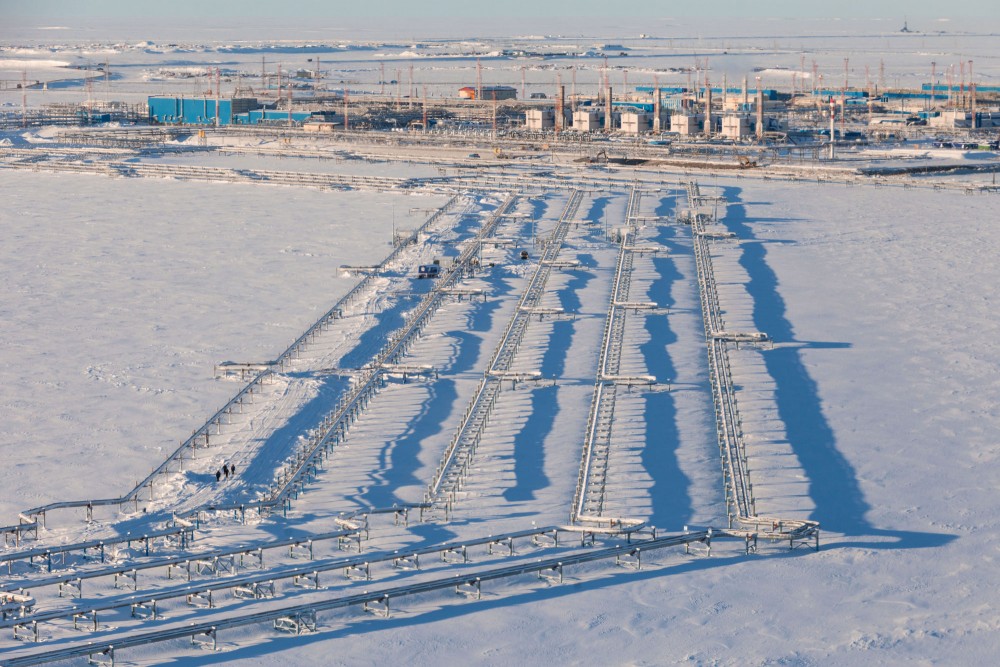Is Europe caving to Russia on pipeline politics?

The European Union appears to be softening its stance on a controversial Russian pipeline project, even as it seeks to wean itself off dependence on Russian gas. And it’s unlikely to find much pushback from Washington, D.C.
The Nord Stream 2 project, meant to pipe natural gas from Russia across the Baltic Sea into Germany, unleashed a blizzard of opposition, particularly from Eastern European countries and even former President Barack Obama’s administration, after it was announced in 2015. Some critics say the pipeline doesn’t make economic sense and isn’t needed; the original Nord Stream pipe is only about half used. And many worry it would redouble Europe’s reliance on Russian energy imports and make it easier for Moscow to use energy as a blunt political tool to strongarm neighbors.
[Newly opened Russian pipeline will mean more Arctic gas for Europe]
But now, Europe’s initial resistance to the project appears to be weakening. Sweden dropped objections to Gazprom’s request to use Swedish ports during the pipeline’s construction. Germany has defended the project against stiff resistance from fellow EU members, particularly Poland, saying it would save cash and reduce emissions. Other countries, like the Netherlands, are deafeningly silent on the controversial project, while their own industries quietly seek a way to join in on the pipeline action. And the newly-released European Commission’s “State of the Energy Union” report, despite paying lip service to Europe’s need to diversify sources of energy supply, doesn’t mention Nord Stream 2 once.
That has some eastern countries irate. During her meeting with German Chancellor Angela Merkel, Polish Prime Minister Beata Szydlo called Nord Stream unacceptable to Warsaw. “This project is not an economic one. It’s a geopolitical one,” a Polish diplomat told Foreign Policy.
Those geopolitics come home to roost, like Russia’s little green men, in Ukraine. Some in Brussels, and in the previous U.S. administration, were worried that Nord Stream would allow Russia to fulfill its dream of bypassing Ukraine, its traditional middleman for exports to Europe. Drying up Kiev’s revenues from gas transits – worth $2 billion a year – would further imperil the shaky Ukrainian economy, at a time when Kiev has its hands full with renewed fighting in Russia’s semi-official war in the eastern part of the country.
Like many Russian pipeline projects, Nord Stream 2 has proceeded in fits and starts. Western companies who partnered with Russia’s state-owned Gazprom all abandoned the project after it bogged down in regulatory battles and intense political scrutiny. But Gazprom has forged ahead, and Europe’s growing acceptance suggests its stubbornness may be paying off.
And then there’s the United States. Obama and senior administration officials pushed Europe for years to reduce its dependence on Russian energy, and actively opposed Nord Stream 2, as well as other Russian pipes meant to do much the same thing. At the same time, the Obama administration and many lawmakers urged greater exports of liquefied natural gas from the United States to terminals in Europe, to give at least Western Europeans more supply alternatives.
The Trump administration’s stance is unclear. It is bullish on U.S. oil and gas production and exports. But President Donald Trump has rattled European allies by extending a roughshod olive branch to Russian President Vladimir Putin, and Secretary of State Rex Tillerson fought U.S. sanctions against Russia when he ran U.S. oil giant ExxonMobil. One of Trump’s earliest backers and top foreign policy campaign advisers, Richard Burt, came under fire for counseling Trump while being paid hundreds of thousands of dollars to lobby for the Nord Stream 2 project.
Given Trump’s stated willingness to take a transactional approach with Russia to secure cooperation in other areas – like fighting terrorists – experts think he could look more favorably on increased Russian energy influence in Europe.
The State Department didn’t respond to a request for comment.
Others say the controversy surrounding Nord Stream 2 is overblown. “When Nord Stream 1 was completed it didn’t turn out to be a geopolitical disaster,” Columbia University’s Tim Boersma told Foreign Policy, citing the project’s predecessor, completed in 2012. “History’s proven the majority of those concerns and grand geopolitical scaremongering proved unfounded,” he said.
Geopolitics aside, Boersma said the deal makes economic and commercial sense. European countries are seeing declining domestic gas production, but demand is rising. Nord Stream 2 is the shortest route from gas fields in western Siberia to European markets, so should be competitive on price. And once it hits EU territory, Russian gas is subject to the same strict European regulation as gas from any other country, Boersma said. (Gazprom is currently in talks with Brussels to resolve a longstanding antitrust complaint.)
But the project promises continued drama. Now that Gazprom is 100 percent owner of the pipeline, it will likely face new legal hurdles, said Sijbren de Jong, of the Hague Center for Strategic Studies. De Jong expects Poland or the Baltic states to lodge new court cases against Nord Stream 2 in a bid to scrap the project entirely. If Gazprom forces its way through the courts over the opposition of some of the EU’s own members, “it would be a political coup for Russia,” he said.
In years past, energy regulation has been one way for Brussels to keep Gazprom’s ambitions in check: A previous Russian pipeline, South Stream, ultimately floundered because it ran afoul of EU law. But it’s not clear if those rules, meant to keep energy monopolies from getting even a potential chokehold over European consumers, will ultimately be enough to stop Nord Stream 2. And that would bode ill for more than just gas markets.
“If the EU is unable to rule on this, it can’t rule on much else,” de Jong said.